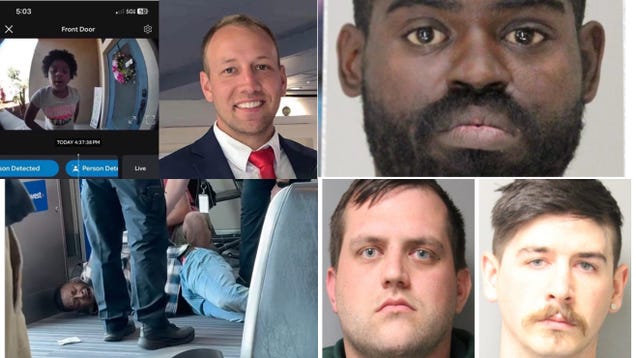.jpg)
PARIS — A show trial opens in France today.
Fourteen people will be tried for their alleged part in the Charlie Hebdo massacre in Paris in January 2015 and the slaughter at the Hyper Cacher Jewish supermarket that followed the next day.
The 10 weeks of evidence and pleading will be filmed and the footage preserved for posterity — a first in French judicial history.
Only three of the defendants are said to have been directly involved in the 17 killings. They are being tried in absentia after fleeing to the now-defunct Islamic State caliphate in Syria and Iraq. They may well no longer be alive.
The 11 other defendants are alleged to have played minor parts in helping Chérif and Saïd Kouachi before they attacked the satirical magazine or assisted Amedy Coulibaly before his hostage-taking and murders at the Jewish supermarket. All three principal protagonists died at the time.
And yet, this 10-week televised trial of 11 minor figures is significant all the same. The court will try to unravel in public the often-confused ideological motivation of the killers and their helpers. It will also examine the blunders in the French security apparatus that failed to forestall the attacks.
It may be a show trial, but it’s a very welcome one.
It’s also an opportunity to look back five years and eight months and ask what, if anything, has changed in France.
The Charlie Hebdo and Hyper Cacher attacks — followed within 10 months by the even more murderous assault at the Bataclan concert hall in Paris — were declared at the time to be “France’s 9/11.”
France would never be the same again, it was said. There would be a before January 7, 2015 and an after January 7, 2015.
More than 3.7 million people took to the streets of Paris and other French cities four days later. These people were not fulminating against Muslims or against radical Islamists. They were declaring themselves — white, brown and Black, left or right, Muslim, Catholic or Jewish — to be united in support of French republican values of tolerance and solidarity.
Their catchphrase was “Je Suis Charlie” — “I am Charlie.”
That slogan also came — for some of the marchers, not all — to mean support for the principle of freedom of opinion and for Charlie Hebdo’s right to publish cartoons representing the Prophet Mohammed. (It is important to stress that the drawings did not mock the prophet. They mostly showed him despairing at the behavior of some of his most radical followers.)
Many French people who had never read Charlie Hebdo regarded the assault on the magazine — which killed several celebrated cartoonists and 12 people in all — as an attack on the French and Western way of life.
To them, Charlie Hebdo represented not just freedom of speech but France’s love of vituperative wit; its truculence; its sense of permanent rebellion.
.jpg)
Five years on, what remains of the two strands of “Je Suis Charlie”?
First, free speech.
The magazine has brought forward its publication date to publish once again on Wednesday the cartoons of Mohammed that provoked the attack. Its editor “Riss” (Laurent Sourisseau) said that he had not done so this time to lampoon radical Islam but to mourn the decline of freedom of speech in France — and the West generally — in the last five years.
He said the magazine’s front-page headline — “Tout ça pour ça” (“All of this for this”) was an attack on the “tyrannical associations and navel-gazing minorities” who had brought cancel and no-platforming culture to France.
“We’ve seen universities cancel conferences, plays boycotted, all sorts of attempts to prevent divergent views on social media,” he said. “It’s astonishing to see how popular censorship has become.”
Riss is right. The free-speech strand of “Je Suis Charlie” is in poor shape in France in 2020 — and especially on the radical Left.
The other strand — support for French republican values of tolerance and solidarity — seems to be doing just fine.
In hindsight, it appears that the January 2015 attack was not really France’s 9/11. The country was not changed radically in the way that, arguably, the U.S. was changed radically by the fall of the Twin Towers.
From 9/11, you can follow a thread that winds through the Patriot Act, the Iraq way, Guantánamo Bay, the polarization of opinion and politics, and then, after a detour through Barack Obama, to Donald Trump.
After the Charlie Hebdo killings, France followed a thread in which the failed Socialist François Hollande was replaced by the centrist Emmanuel Macron.
There has been no radical turning away from tolerance and democracy — no widespread or systematic backlash against France’s 5,000,000 Muslims. Support for Marine Le Pen’s far-right National Rally remains strong (at around 23 percent) but no stronger than it was in 2014 before the attacks.
To be sure, there has not been any continuation of the “Je Suis Charlie” spirit — the spirit of common values — of the 3.7 million-strong marches of January 11, 2015. French political life rapidly returned to its ill-tempered normality. Hollande’s favorable ratings, which doubled after January 7, 2015, fell so far and so fast that he decided not to run in 2017.
But while politics in the Macron era may be sharper and more polarized and have a more negative edge than before, that can be explained in several ways — the power of social media, the perils of being a centrist.
France’s annus horribilis, 2015, produced neither a deeper intolerance nor a lasting new sense of common purpose. For good or ill, France, five years after Charlie Hebdo, remains, for the most part, stolidly France.
from Politics, Policy, Political News Top Stories https://ift.tt/32MiY3E
via 400 Since 1619


